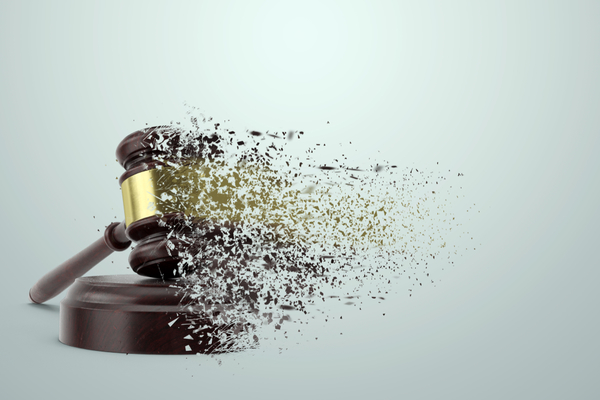Click here to read Part I of this series.
Judicial review represents the authority to refuse a law, but not the authority to create or replace a law enacted by Congress. The Supreme Court must follow its three basic principles:
- The Constitution is the supreme law of the United States,
- The Supreme Court possesses the ultimate authority in constitutional rulings, and
- The judiciary is obligated to rule against any law that conflicts with the Constitution without amendment, re-write, or editing.
Judicial review is perverted through judicial activism. The Constitution’s words matter, literally.
Mark Levin notes that “too many judges consider the Constitution a document of broad principles and concepts, one that empowers them to substitute their personal beliefs, values, and policies for those enumerated in the Constitution.”
Bypassing Dred Scott v. Sanford, Plessy v. Ferguson, Korematsu v. United States, in which activism triumphed over the Supreme Court’s obligation to rule against law conflicting with the Constitution, we continue to abortion, resident in Roe v. Wade, 410 U.S. 113 (1973), (PDF), which descends from a perceived right-to-privacy found nowhere in the Constitution.
Nonetheless, how we got there follows from prior cases.
Justice John Harlan in Poe v. Ullman, 367 U.S. 497 (1961), (PDF), provided a minority dissent contrived judicial activism through a lawyer’s comparison argument. He mused that threatened prosecution versus actual prosecution of existing laws was a consideration through the concept of justiciability, (i.e. “the limits upon legal issues over which a court can exercise its judicial authority”).
Justiciability means that while the participants currently had no “standing” to bring the suit forward, it might be valid litigation at some future time. This is not a constitutional statement nor principle.
The privacy issue was advanced and adopted by Justice William Douglas in Griswold v. Connecticut, 381 U.S. 479 (1965), when the Connecticut statute preventing birth control, Section 53-32, was challenged.
Justice Douglas determined that “martial privacy” was implied in the Bill of Rights as peripheral requirements )over the actual words in the amendment).
Justice Douglas suggested that since the Congress had written laws regarding education, (which does not appear in the Constitution), such actions authorized the court to conclude it had a similar freedom. In doing so he introduced judicial activism by adding processes he defined such as the "freedom to write, freedom to teach, freedom to inquire and freedom to think," as a basis for inclusion in constitutional litigation.
Douglas arrived at this inclusion from his interpretation of peripherals (in Douglas’s terminology - penumbra). He proceeded beyond what is literally written in the Constitution, suggesting government legislative behavior paved the way for the expansion of personal interpretation.
Griswold v Connecticut set the next judicial activist action in Eisenstadt v. Baird, 405 U.S. 438 (1972) (in which privacy protection around contraception is extended to unmarried people) and Roe v. Wade (involving restrictions on abortion, concepts not literally included in the Constitution but presumed to be there).
If such laws need to be made, they are the responsibility and purview of local and state governance under the Tenth Amendment.
In Nicomachean Ethics, Aristotle discusses justice as the most public virtue. This is: (a) not an over-control of the people which takes away their innate learning of virtues and ability to practice good, (b) the creation of good laws, (c) the opportunity to contemplate and recognize consequence, and (d) encouragement of just power and citizenship to be fully operational within the society.
The abrogation by the Supreme Court in its constitutional obligation under judicial review is yet another reason to join the Convention of States.
Exercise your rights under Article V of the Constitution to bring government under control from its monopolistic position as largest creditor, debtor, lender, employer, consumer, contractor, property owner, insurer of health care, pension guarantor and grantor for the nation.
It is imperative we recognize the Declaration of Independence's frame of the Constitution, which establishes citizen rights originate from God--not from government, not from England’s King, and not from the judiciary.
The casual drift over decades toward subservience to government’s whim is self-evident, upheld by heinous government bureaucracies and Supreme Court judicial activism.
If we hold these truths as self-evident, Article V will begin to swing the ship of state back to the Founders' original intent for the individual citizen.






